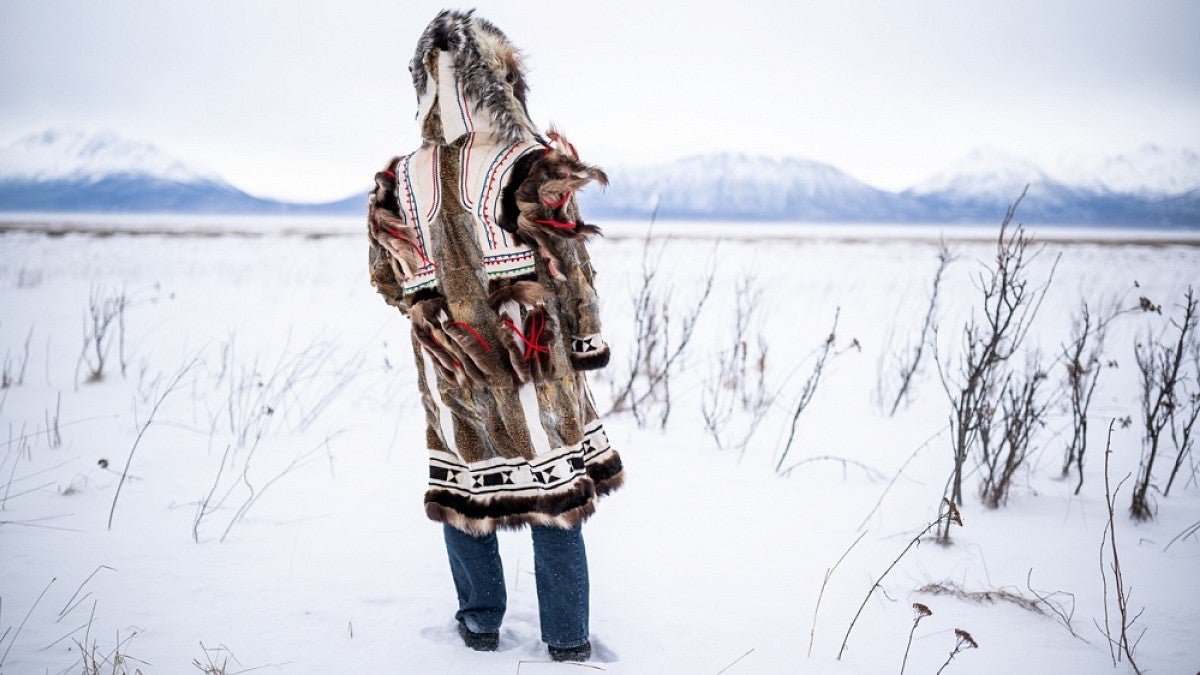In 2018, the Anchorage Daily News asked readers if they would share their stories of sexual violence to help determine why assault and murder cases in Alaska were increasing in numbers and severity. More than 200 people responded.
The news staff partnered with ProPublica’s Local Reporting Network to publish “Unheard,” a compilation of 29 stories from women and men speaking about their experiences with sexual assault. Their respectful exploration of this sensitive topic earned the 2021 Ancil Payne Award for Ethics in Journalism from the UO School of Journalism and Communication.
Established in 1999 by the family of Seattle broadcasting legend Ancil Payne, the award recognizes the tough choices journalists make behind the scenes to meet the rigorous ethical standards of the journalism profession and bring the truth to the public despite personal, financial, legal or political pressures.
The Payne Award’s focus on difficult ethical choices sets it apart from most other national journalism awards.
“The nominations were exceptional this year, and the discussion about the ethical decisions the journalists faced was eye-opening and insightful,” said Juan-Carlos Molleda, Edwin L. Artzt Dean and professor in the School of Journalism and Communication. “The Anchorage Daily News/ProPublica collaboration stood out for a primary reason: The reporters set a strong example for the best ways to respectfully and humanely give voice to survivors of sexual assault while presenting a diversity of perspectives.”
Alaska has the highest rate of sexual assault cases in the nation. Approximately one-third of women in Alaska have experienced sexual assault at some point in their lifetime.
Reporters for the two news organizations spoke with an initial group of respondents as well as hundreds of additional sexual assault survivors to identify recurring themes and systemic problems in how Alaskan police, prosecutors and courts handle sexual assault cases.
“They often told stories of being sexually abused as children and again and again throughout adulthood,” said Kyle Hopkins, co-writer of the series and special project editor at the Anchorage Daily News. “When they reported the crimes, police sometimes failed to investigate, or prosecutors declined to file charges. After failing to see justice, some stopped reporting the rapes altogether.”
Hopkins said two principles guided his team’s decisions. First, they couldn’t compromise their reporting standards in any way, meaning every story would be subject to the same rigorous fact-checking process as any piece they publish. Second, they would honor the participants’ wishes at every opportunity.
They shared their experience in their own way, providing as much detail as they were comfortable with sharing. They worked with the newspaper’s photographers to create images that suited them, including decisions about the location, wardrobe and others they wanted in the picture.
The journalists also followed five guiding principles when conducting their reporting: do no harm, adhere to journalistic standards, protect sources, avoid stigmatization and stereotyping, and avoid sensationalism.
“In general, we avoided gratuitous detail in favor of clear-eyed and simple language that didn’t shy away from the horrors of these attacks but did not veer into over-description,” Hopkins said. “Another way we sought to avoid sensationalism was to not share links to individual survivors’ profiles so that they would not be the target of doxing or other derogatory comments.”
At the end of the project, the staff arranged a Zoom meeting so all the participants could meet one another. The news organizations also partnered with the Anchorage Museum to set up an outdoor display of the survivors’ photos and stories with accompanying audio as another way for stories to be heard.
The Ancil Payne Award Selection Committee, which includes working journalists and journalism educators, also recognized Amy Brittain, Reena Flores and Bishop Sand of The Washington Post, the Mississippi Free Press staff, and Margie Mason and Robin McDowell of the Associated Press as Ancil Payne Award finalists.
“This year’s nomination pool included major national and international news organizations, regional and community journalists and several young journalists of color who bravely challenged conventions and assumptions in their newsrooms,” said Tim Gleason, journalism professor and director of the Payne Award. “The judges were inspired by the commitment of these young journalists to their communities and to the future of journalism.”
Mason and McDowell won the 2016 Payne Award for their “Seafood from Slaves” series. This year they spent more than two years reporting “Fruits of Labor,” a series of interviews from children and palm oil workers who were trafficked, enslaved, abused and raped. The most important goal for the reporters, even more important than publishing the story, was protecting the workers at all costs.
The Washington Post finalist is the first podcast the Payne Award Selection Committee has recognized. The seven-part podcast “Canary: The Washington Post Investigates” explores the decisions of two women to share their accounts of sexual assault and the consequences of those choices. “Canary” reveals systemic problems within the criminal justice system that illustrate how difficult it is for survivors to feel any sense of justice.
The Mississippi Free Press finalist is for “‘The Fabric is Torn in Oxford’: UM Officials Decried Racism Publicly, Coddled it Privately.” A public records request provided the media outlet thousands of emails and other documents from the University of Mississippi, where a group of anonymous whistleblowers unearthed a collection of emails between university officials and wealthy donors expressing racist views. The newsroom balanced the need to protect the identities of the whistleblowers and other sources.
The School of Journalism and Communication invites the UO community to the virtual Ancil Payne Award ceremony April 29 from 4:30 to 6 p.m. The 2020 and 2021 winners of the Payne Award, as well as the 2021 finalists, will discuss their stories and behind-the-scenes ethical decisions during a moderated conversation and audience Q&A. The event is free, but registration is required.
—By Joanna Mann, School of Journalism and Communication


